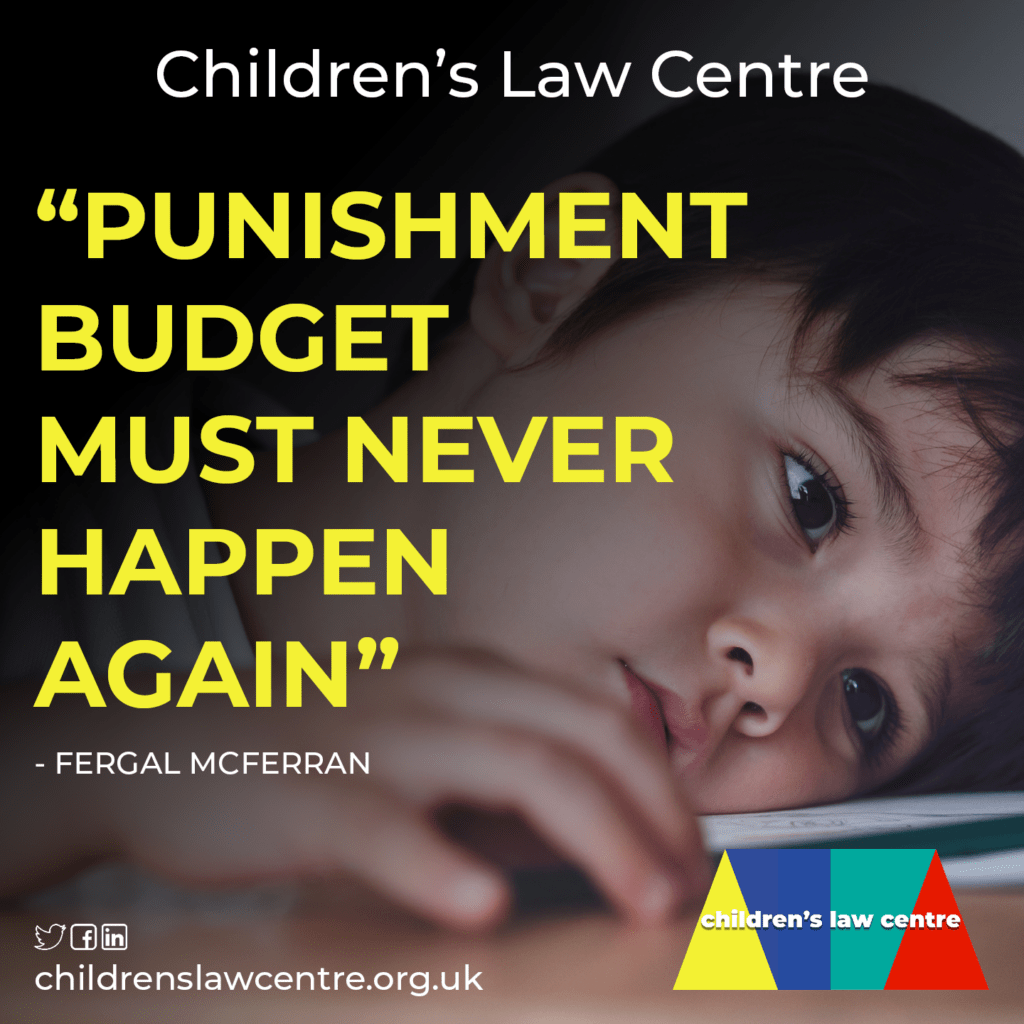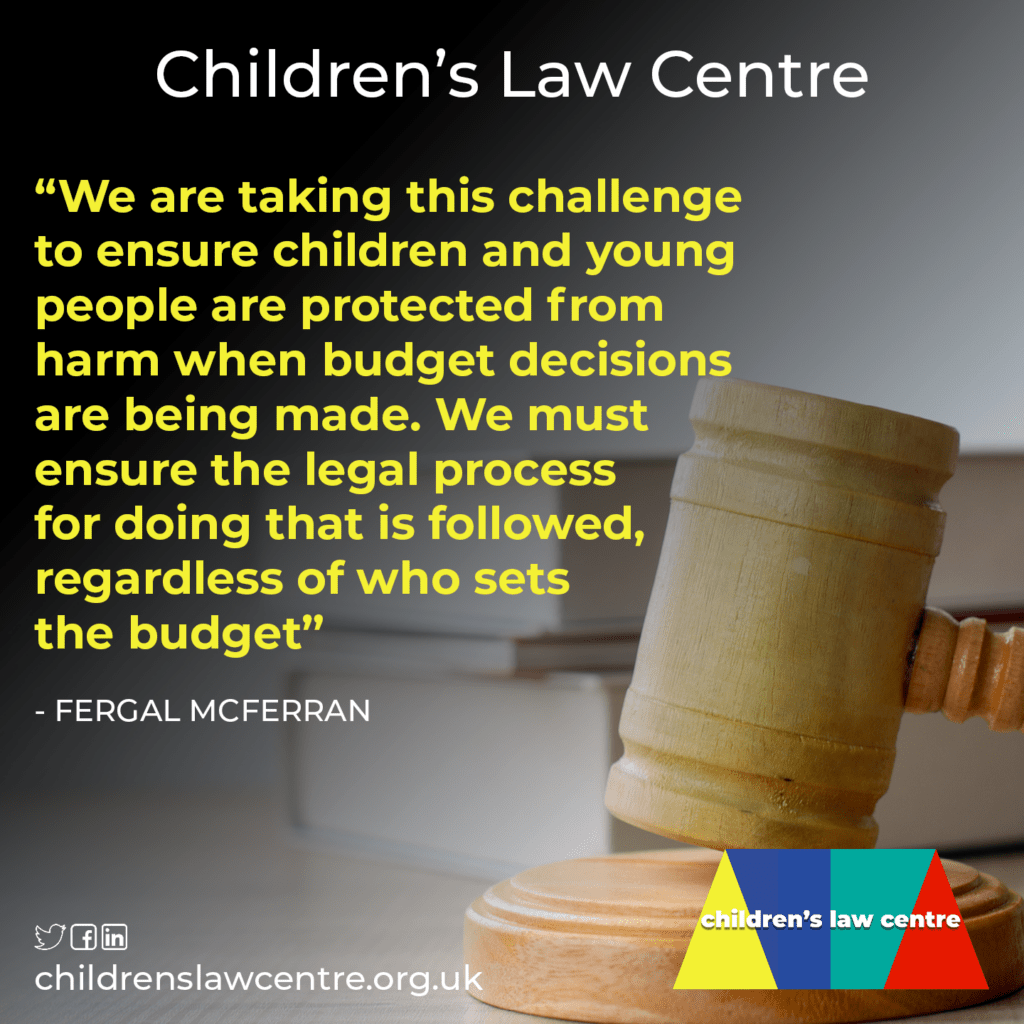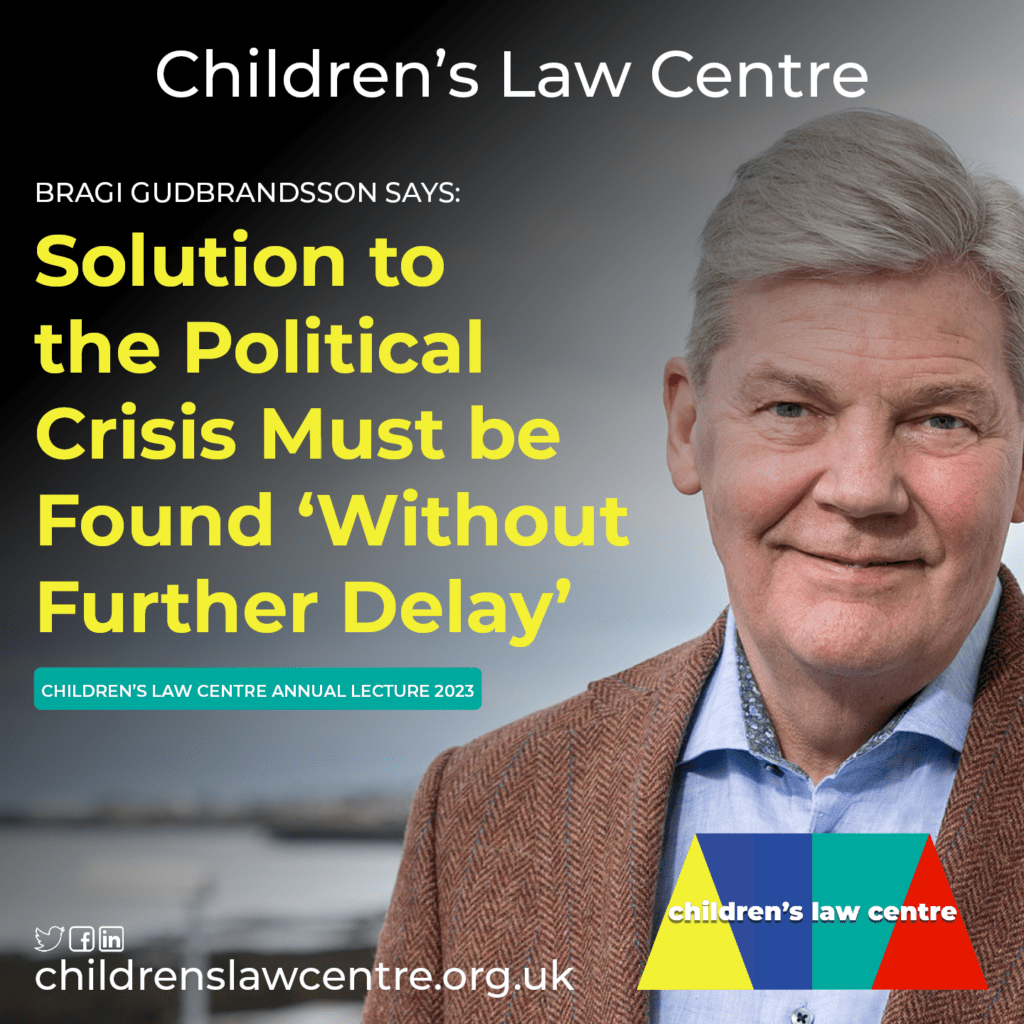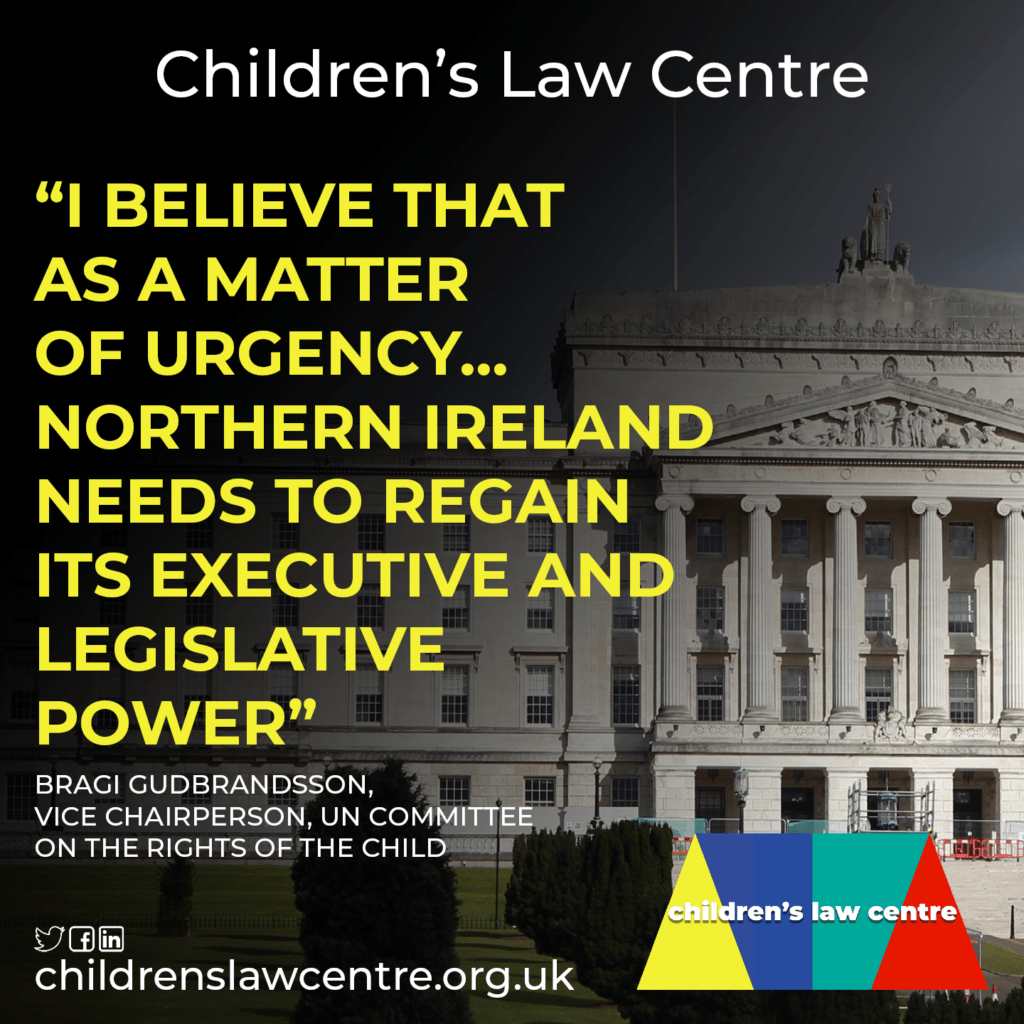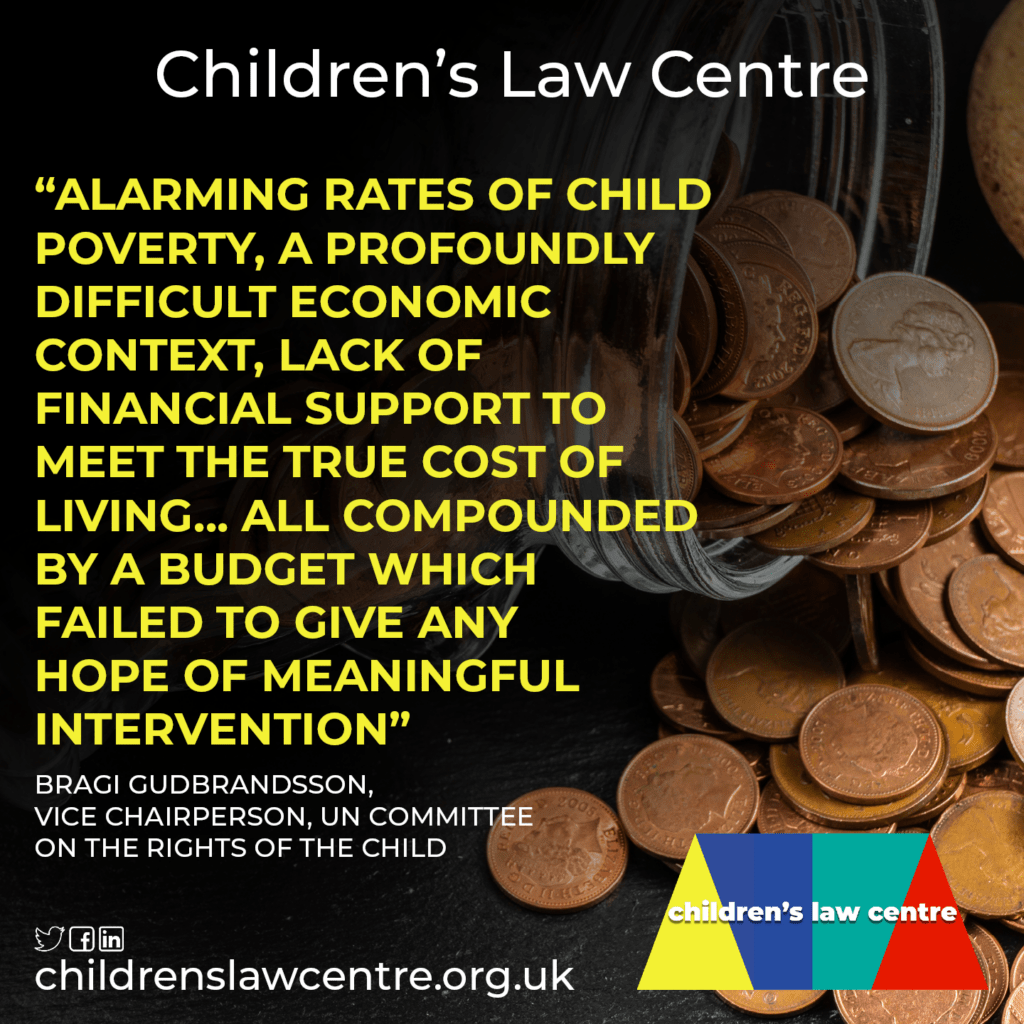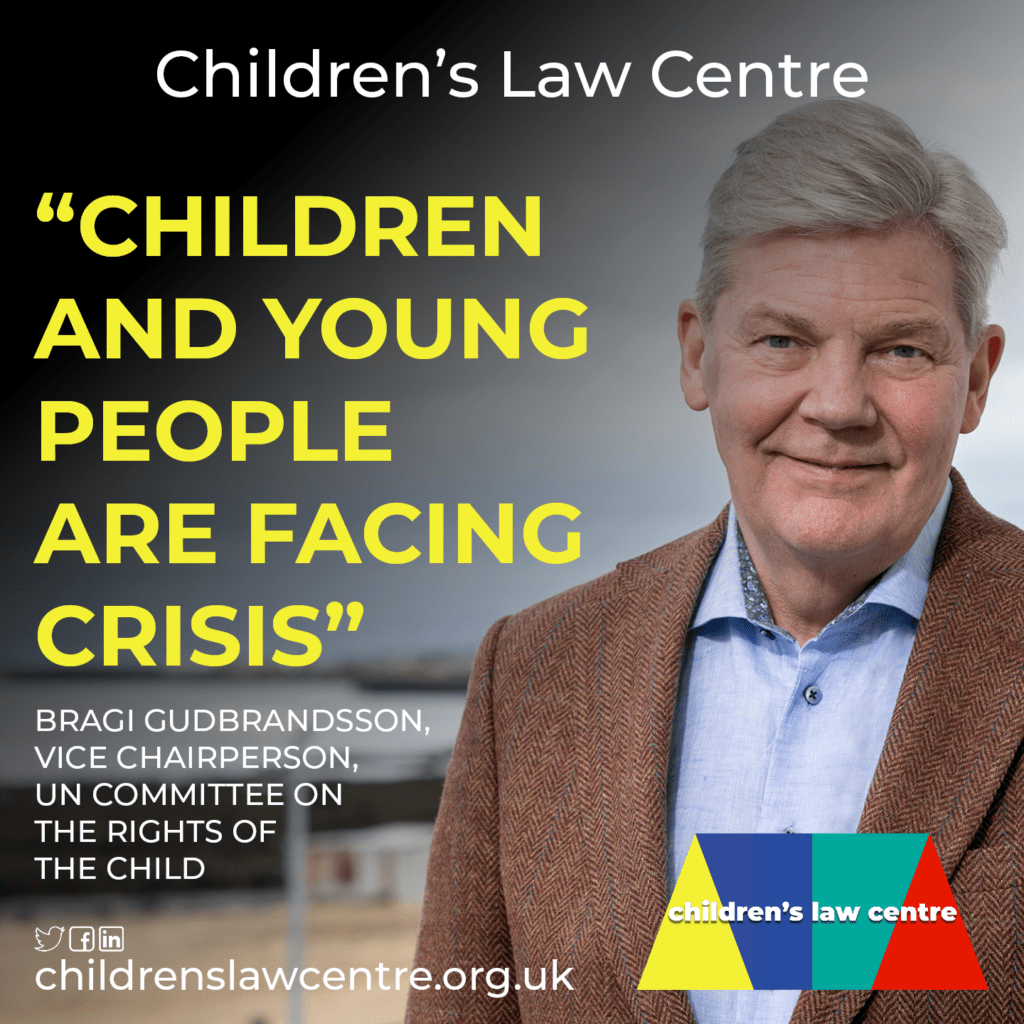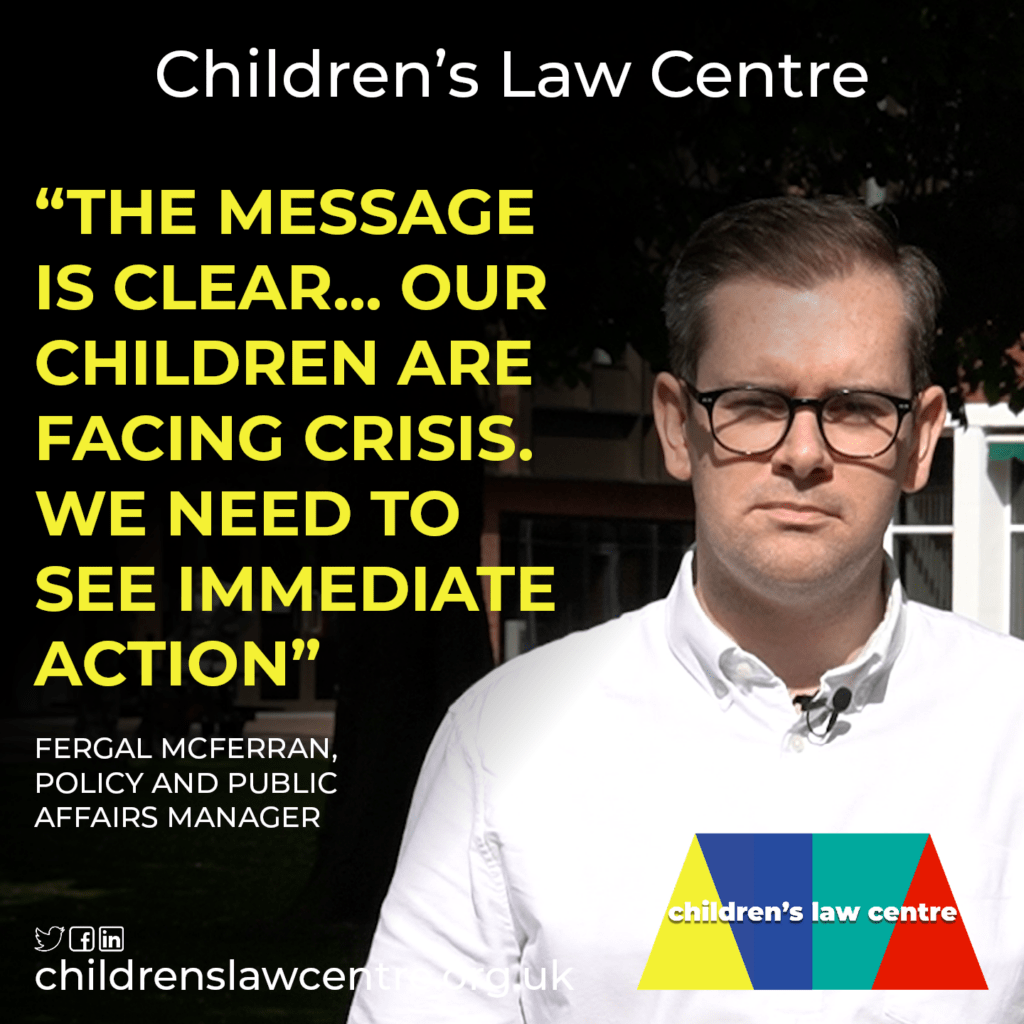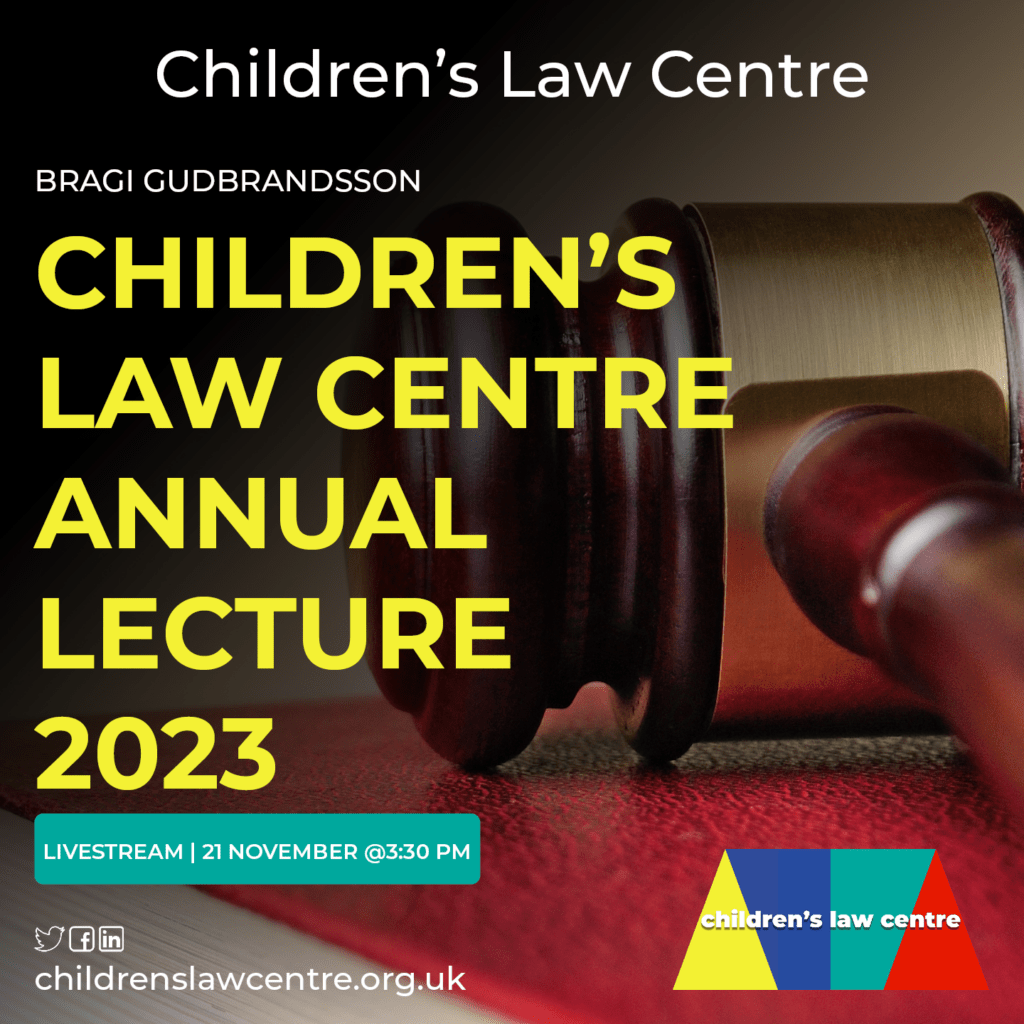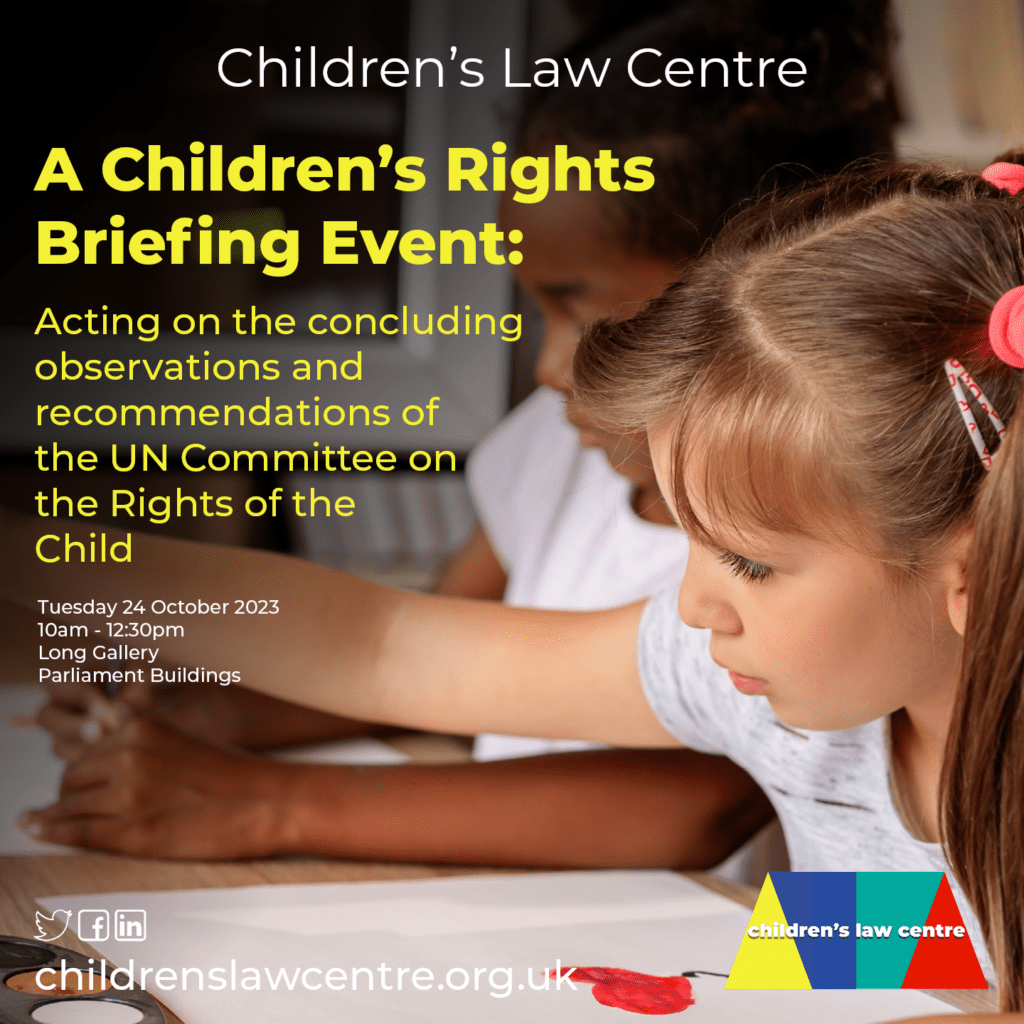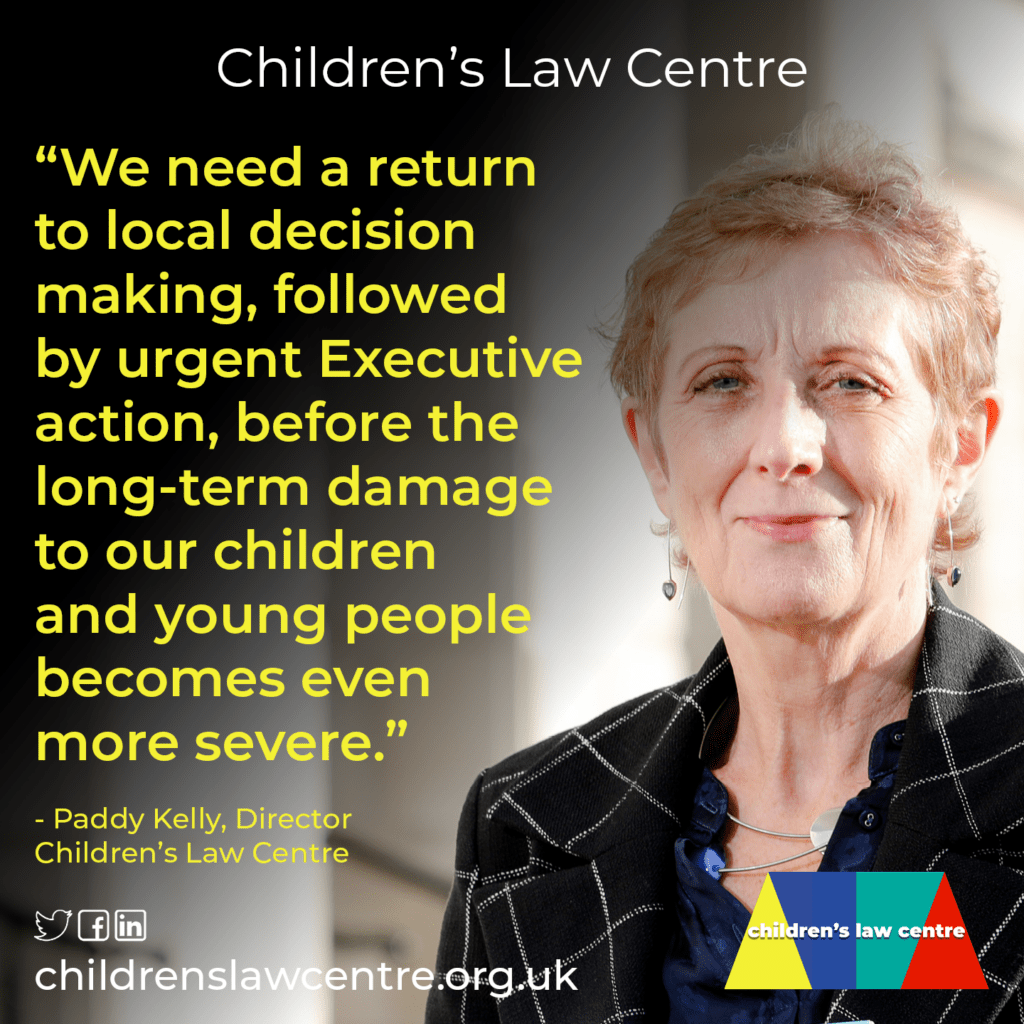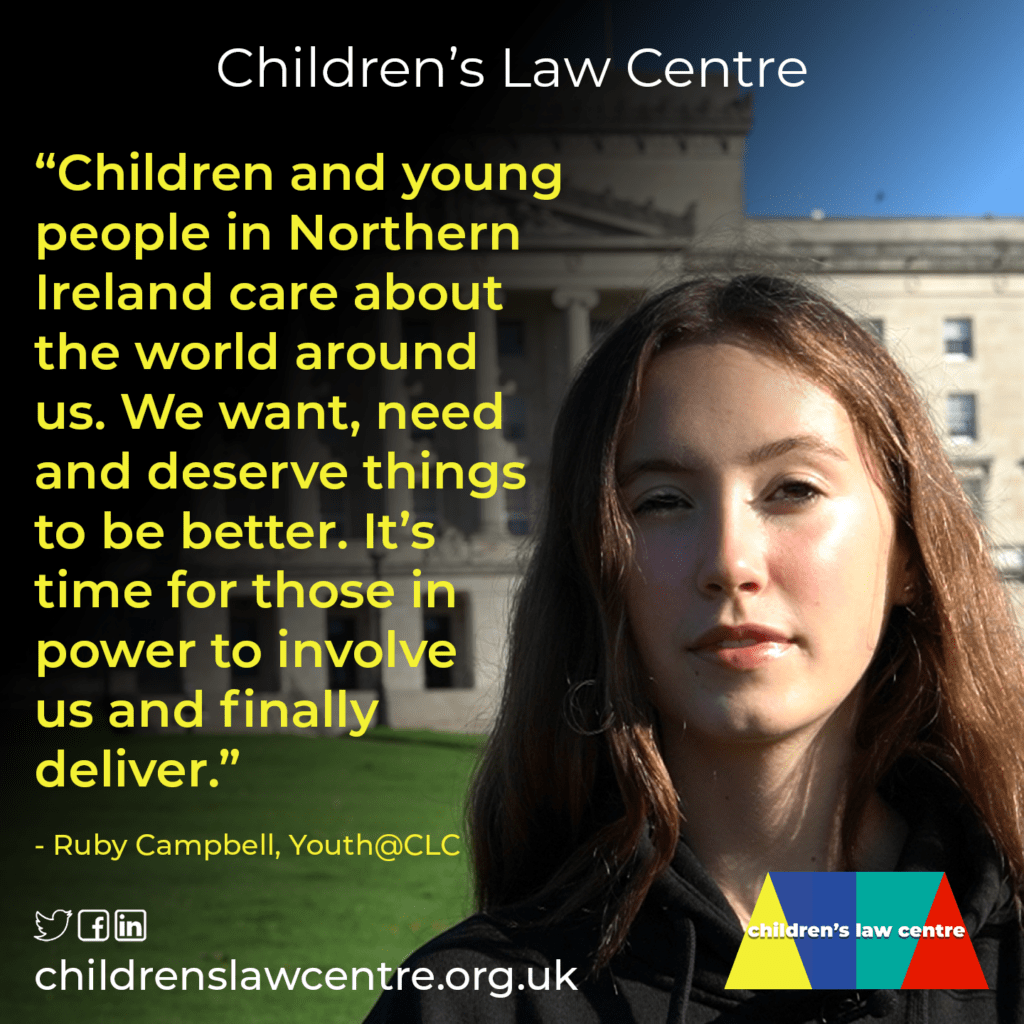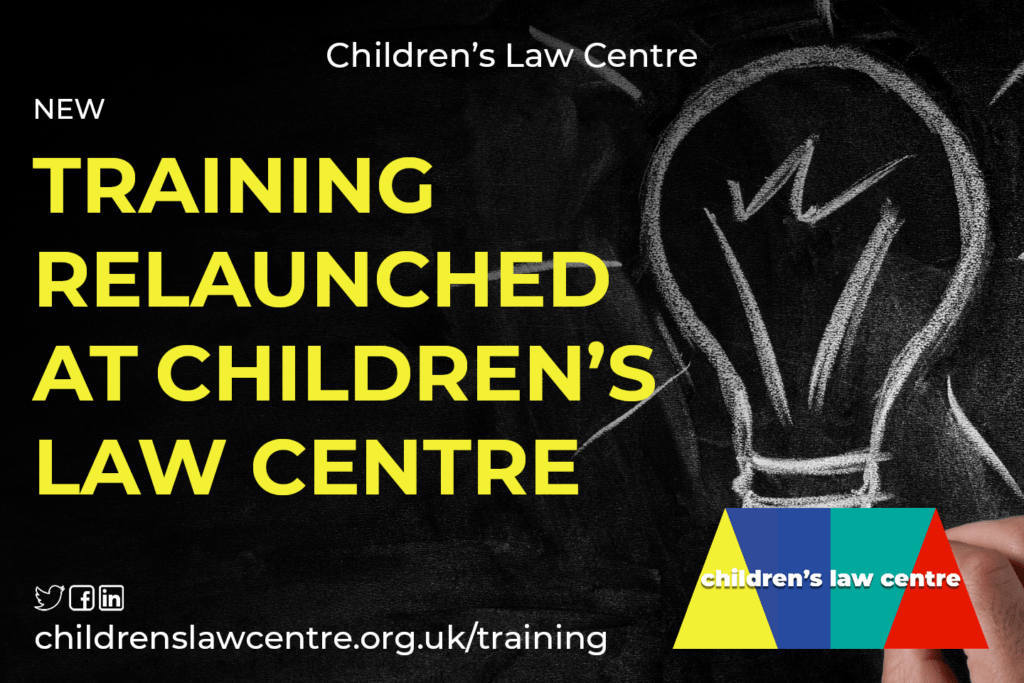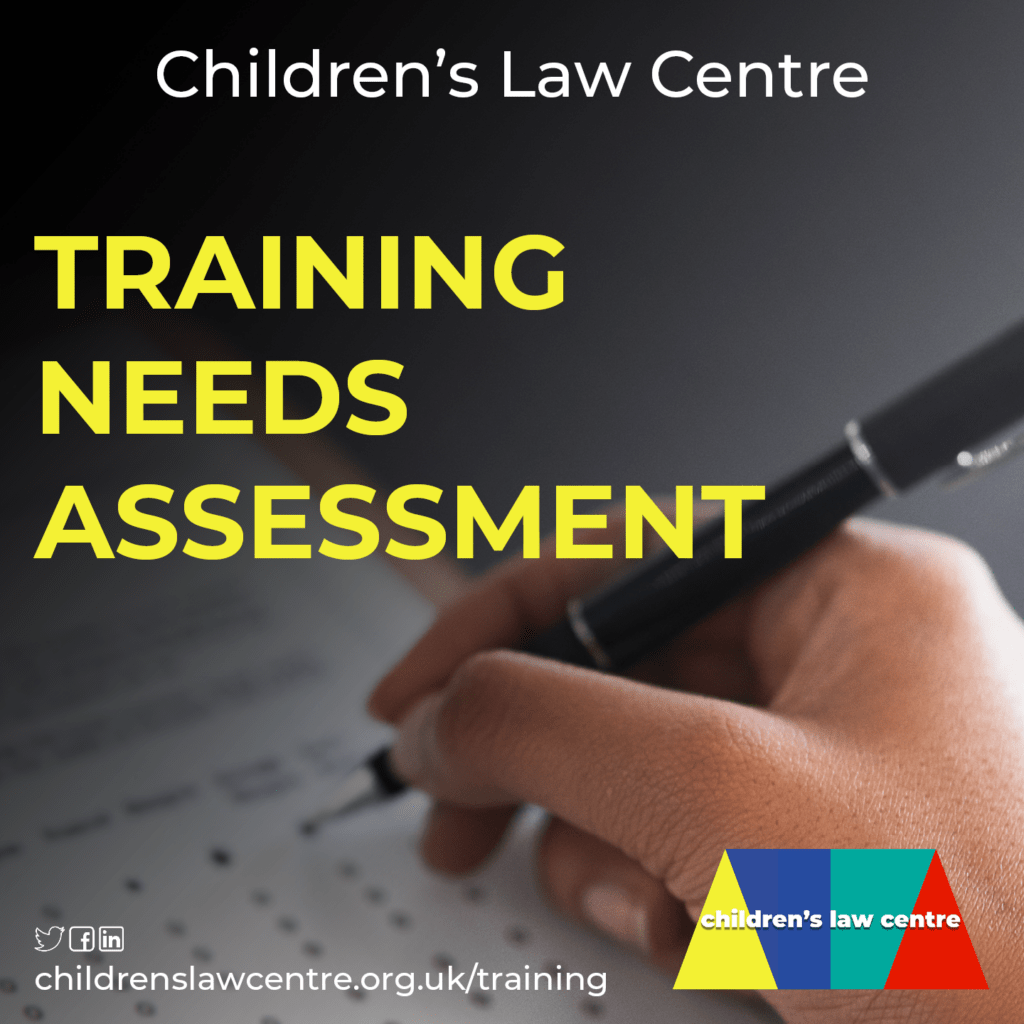21 November 2023
Mr Bragi Guðbrandsson, Vice Chairperson of the UN Committee on the Rights of the Child has highlighted the need for the restoration of the Northern Ireland Executive ‘without further delay’. Mr Guðbrandsson addressed the lack of local decision making when delivering the Children’s Law Centre Annual Lecture 2023 at the Royal Courts of Justice in Belfast.
The lecture covered a number of key areas where children and young people’s rights are not being fulfilled. This included relationship and sexuality education (RSE), uses of force on children, restraint and seclusion, the treatment of refugee and asylum seeking children, academic selection, the age of criminal responsibility, child abuse, child sexual exploitation and child poverty.
Mr Guðbrandsson also repeatedly referenced the 2023/24 budget for Northern Ireland.
During the lecture, Mr Guðbrandsson said:
“The lack of progress in legislation being brought forward and delays implementing existing legislation and strategies to improve children’s lives in Northern Ireland require a solution to the political crisis in Northern Ireland without further delay.”
Mr Guðbrandsson referenced the committee’s recommendation on the 2023/24 budget for Northern Ireland a number of times during the lecture, saying:
“To my knowledge, no steps have been taken in Westminster to revise, yet alone withdraw the budget for Northern Ireland or to take any serious steps to mitigate any adverse impact on the most vulnerable children.”
He continued by reflecting on the current context facing children and young people:
“Alarming rates of child poverty, a profoundly difficult economic context, lack of financial support to meet the true cost of living, the complexity of the impact of the Covid-19 pandemic still not fully known – all compounded by a budget which failed to give any hope of meaningful intervention.”
Mr Guðbrandsson concluded his lecture by repeating the need for the restoration of local decision making:
“While there has no doubt been progress in some areas, we have regrettably concluded that a vast number of children are being let down because of the continued failure to implement key measures and protections as laid out in the UNCRC.
“At the risk of some you may find I am using too strong words, I have argued that children and young people in NI are facing crisis in terms of lack of progress and even push-backs in crucial clusters of rights embodied in the UNCRC. I have repeatedly said in my speech that the prerequisite for overcoming the hindrances I believe that as a matter of urgency… Northern Ireland needs to regain its executive and legislative power”.
The Children’s Law Centre Annual Lecture 2023 took place on Tuesday 21 November, at The Inn of Court, Old Bar Library, Royal Courts of Justice, Belfast.
Key issues raised include:
- Lack of NI Executive
- Brexit
- Academic selection
- Relationship and Sexuality Education (RSE)
- Lowering the voting age to 16
- Uses of force on children, including strip searches, spit and bite hoods and stop and searches
- Corporal punishment
- Child friendly and multiagency response to child sexual abuse
- Implementation of recommendations from the Gillen Review
- Lack of a childcare strategy
- Restraint and seclusion
- Child and Adolescent Mental Health
- Child poverty
- Refugee and asylum seeking children
- The minimum age of criminal responsibility
- The environment
The committee’s concluding observation on the 2023/24 budget reads: “Withdraw the budget for Northern Ireland for the period 2023–2024 and fully consider the equality and human rights implications for a new budget, taking all possible steps to mitigate any adverse impact on children’s rights before issuing a revised budget.”
